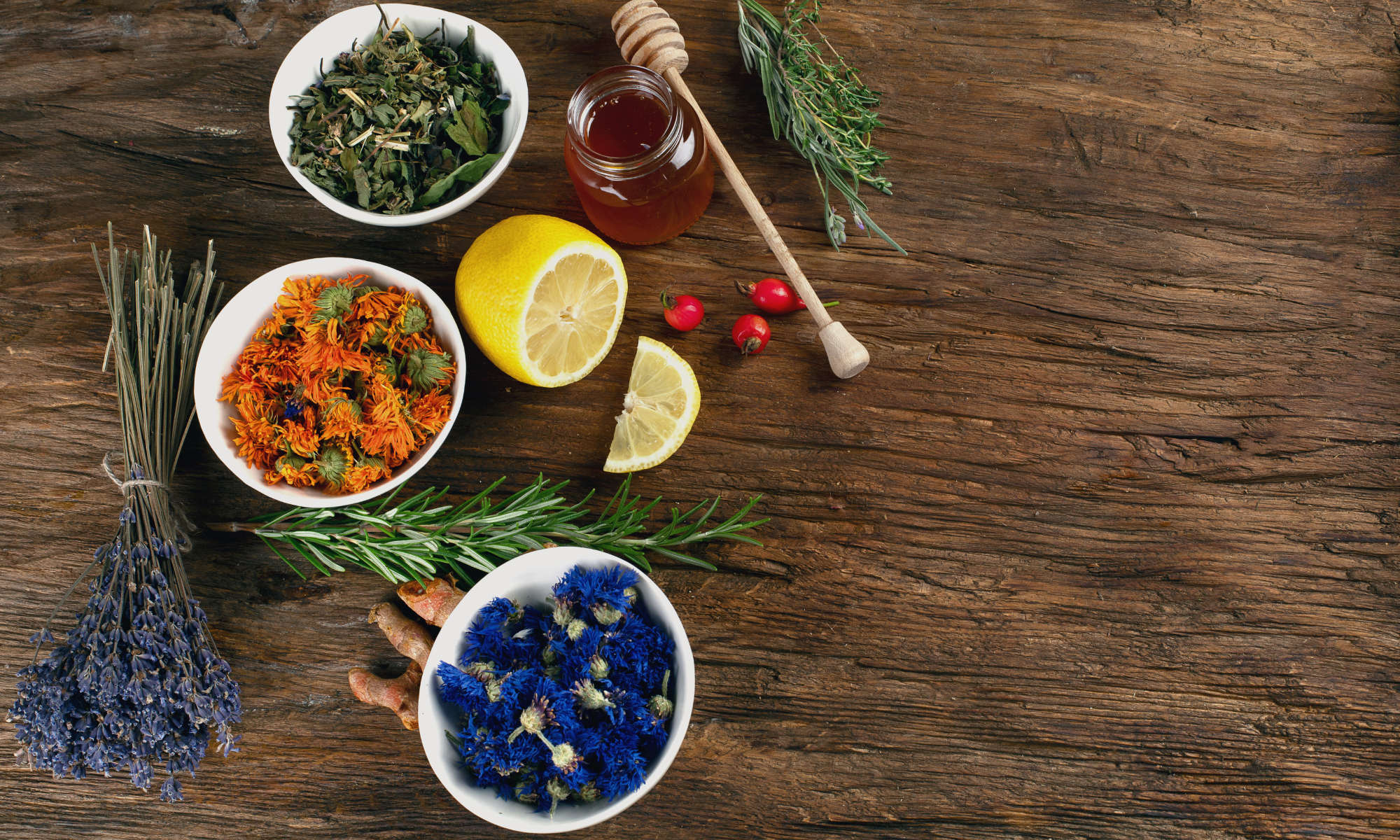10 Natural Remedies for Allergies That Actually Work

Seasonal congestion and constant sneezing can feel frustrating and expensive to manage. Many people search for natural remedies for allergies that address both ease of use and proven benefits. Targeted nutrients and gentle herbal extracts aim to reduce underlying triggers without harsh side effects. Some individuals even notice improved daily performance through these solutions, thanks to a lighter dependence on medication and fewer days disrupted by allergy symptoms.
1. Quercetin Supplements for Immune Support

Quercetin is known for its antioxidant properties that target inflammation at the root. This plant-derived compound helps block the release of histamines, a major contributor to sneezing and watery eyes. Some individuals find that quercetin offers a timely solution, allowing them to experience relief faster and possibly lower overall medication costs. It is often combined with vitamin C for enhanced absorption and more comprehensive immune support.
Many people view quercetin as one of the top natural remedies for allergies because of its synergy with other nutrients. Steady intake can deliver measurable improvements, especially if you want to address seasonal triggers before they escalate. Consistent use may also translate to fewer missed workdays, which ultimately leads to stronger productivity and better personal outcomes. Staying proactive with quercetin helps reduce flare-ups and supports a more comfortable day-to-day routine.
2. Butterbur Extracts to Ease Nasal Discomfort

Butterbur extract is frequently recommended for those who want a targeted approach to congestion. This plant-based option focuses on relaxing swollen nasal passages, offering a sense of relief for individuals dealing with stuffiness. Many people choose butterbur to lessen reliance on conventional remedies while addressing the core irritants behind breathing challenges. Reputable brands remove harmful alkaloids to ensure a safer experience.
Reliable butterbur supplements have been linked to milder sinus headaches and less severe congestion, allowing you to maintain focus. This method aligns with cost-control strategies, since every day without nasal issues means fewer medical expenses. Butterbur also pairs effectively with other natural remedies for allergy relief, creating a multi-pronged regimen that addresses different triggers. Regular use can improve comfort levels and support broader goals that benefit both personal and work demands.
3. Stinging Nettle for Natural Histamine Regulation

Stinging nettle stands out as a top pick among natural remedies for sneezing allergies. Certain compounds in stinging nettle help stabilize histamine activity in the body, an important step toward controlling flare-ups. Its mild diuretic effect can also help clear excess fluids, which often build up during high-pollen times. Many find it gentle enough for sustained use with minimal side effects.
Some studies suggest that stinging nettle supports balanced inflammatory responses, making it a sensible choice for broader health plans. This approach can be cost-effective if you aim to reduce multiple over-the-counter purchases. Incorporating stinging nettle into your schedule may enhance daily performance due to reduced sniffles and watery eyes. A consistent routine provides a stable defense against seasonal discomfort, allowing you to focus on more productive activities.
4. Incorporating Spirulina and Chlorella into Your Diet

Spirulina and chlorella are two nutrient-dense algae that supply vitamins, minerals, and antioxidants in abundance. Many enthusiasts praise their role in moderating the body’s response to allergens, making them top picks among natural remedies for pollen allergies. A diet that includes these superfoods may lead to more efficient reactions against outdoor irritants such as pollen. Spirulina and chlorella are available in powders or capsules, making them easy additions to smoothies or meals.
These algae can be integrated into your plan at a comfortable pace, enabling small increments before deciding on higher doses. This flexibility is ideal for those mindful of their budget, as you can test how your body reacts before making bigger investments. Consistent consumption supports diverse nutritional needs, which may translate into fewer clinic visits over time. A balanced approach with spirulina and chlorella helps fortify your defenses against seasonal triggers while promoting healthy energy levels.
5. Herbal Blends Featuring Goldenrod and Alfalfa

Goldenrod and alfalfa are popular for their combined impact on multiple allergy symptoms. Goldenrod supports clear nasal passages, and alfalfa offers a variety of nutrients to strengthen overall vitality. Many herbalists consider this combination a versatile natural remedy for seasonal allergies, as it targets both nasal and immune system challenges. Some prefer brewing these herbs into teas, while others use standardized extracts for convenience.
Herbal blends with goldenrod and alfalfa can be part of a more cost-effective approach to allergies. Steady use often leads to smoother breathing and fewer interruptions in both personal and professional settings. Structured supplementation also fits well into a future-oriented plan, reducing the likelihood of acute flare-ups. Thoughtful inclusion of these herbs builds a robust foundation for consistent relief.
6. Vitamin C to Strengthen Immune Response

Vitamin C is widely respected for its contribution to immune health. Many individuals trust this nutrient to help the body adapt to airborne irritants that spark sneezing fits. Adequate vitamin C intake promotes better resilience, which often means quicker relief and fewer periods of discomfort. Whole foods like bell peppers, oranges, and strawberries deliver convenient sources of this essential vitamin.
Some people opt for premium vitamin C supplements to adopt a more focused approach to natural remedies for seasonal allergies. This is particularly helpful if you face intense allergen exposure or want a streamlined plan. Reliable vitamin C intake supports the efficacy of other nutrients, creating a well-rounded and cost-effective health strategy. Combining vitamin C with balanced lifestyle habits can offer consistent improvements and reduce overall risk of extended flare-ups.
7. Probiotics for Gut Health and Allergy Reduction

A balanced gut microbiome significantly shapes inflammatory responses and influences immune function. Probiotic-rich foods, including kefir, yogurt, and fermented vegetables, can promote beneficial bacteria that help regulate histamine. Many individuals report that probiotics contribute to fewer instances of nasal stuffiness, making them a valuable addition to your natural remedies for allergies approach. Positive gut health practices often enhance mental clarity, which plays a role in better daily decision-making processes.
Focusing on probiotics can result in lasting benefits that go beyond immediate symptom relief. Some people notice that maintaining gut balance optimizes nutrient absorption, leading to stronger energy levels. Individuals can tailor this approach to fit different needs, from cost-conscious grocery shopping to dedicated supplementation. Staying proactive with gut health may translate into fewer challenges during high-allergen months.
8. Omega-3 Fatty Acids to Combat Inflammation

Omega-3 fatty acids, commonly found in fish oil, flaxseed, and walnuts, help moderate swelling that contributes to allergic reactions. These healthy fats support lung function and can promote clearer breathing, making everyday tasks more comfortable. Many people rely on omega-3s to boost other natural remedies for allergy relief, because anti-inflammatory foods often lessen the severity of common symptoms. Some also appreciate the cardiovascular benefits that come from consistent omega-3 intake.
Supplements or dietary sources of omega-3s integrate easily into busy routines and can make a measurable impact in a matter of weeks. Boosting intake during peak pollen counts can help sustain relief. Over time, investing in omega-3s often means fewer medical costs and less dependence on standard medication, which supports a more efficient use of resources. Relying on this method is a straightforward way to improve your body’s natural defenses and maintain optimal well-being.
9. Local Honey for Gradual Allergy Desensitization

Local honey is often recommended for introducing trace amounts of regional pollen into your system. This small-scale exposure may help your body adapt more efficiently to the allergens in your area, lowering the risk of severe reactions. Many individuals enjoy adding local honey to tea or oatmeal, appreciating its sweet taste and potential synergy with other natural remedies for spring allergies. This strategy is praised for its simplicity and overall gentleness on the body.
Daily use of honey for several weeks can heighten its effect, so consistency is key if you want to see tangible results. Some appreciate that it replaces table sugar, which can support healthier dietary choices. This method brings minimal side effects and can help you stay ahead of looming seasonal irritants. Pairing local honey with a diverse supplement plan often creates a balanced route to relief.
10. HEPA Filters to Minimize Indoor Allergens

High-efficiency particulate air (HEPA) filters trap microscopic particles, such as dust mites, pet dander, and mold spores. These filters can greatly reduce the indoor triggers that fuel congestion, allowing for cleaner air and a more pleasant living or working area. Proper maintenance of filters maximizes their efficiency, serving as a cost-effective way to lessen frequent medication use. Many people install HEPA devices in homes or offices to sustain a stable indoor space that supports productivity.
Strategic placement of HEPA filters helps address morning congestion or late-night coughing, improving rest and energy levels. Some households observe a noticeable drop in sinus irritation, likely due to the improved air quality. Combining this approach with other natural remedies for spring allergies fosters a layered defense against allergenic factors. A well-managed indoor space often translates into stronger well-being and fewer disruptions from persistent irritants.
Allergy Triggers to Avoid
Many common irritants can significantly intensify nasal congestion and sneezing episodes. Detailed awareness of your triggers helps you prioritize changes that support a steady routine. Some unexpected sources, like certain cleaning products or personal care items, may sneak up on you. Targeted avoidance of these allergens eases stress, curbs expenses, and frees you to focus on high-value activities.
-
Scented candles and air fresheners: Artificial fragrances often aggravate hypersensitivity.
-
Dust mites in bedding: Microscopic particles embed easily in mattresses and pillows.
-
Household mold in damp areas: Moisture accumulation supports spore growth that irritates the sinuses.
-
Smoking or second-hand smoke: Residue and fumes can trigger coughing and throat irritation.
-
Perfumes and colognes: Strong scents sometimes lead to headaches and watery eyes.
-
Unventilated bathrooms and kitchens: Steam or cooking vapors linger, trapping allergens indoors.
Managing these sources creates a reliable framework for a well-rounded strategy. You can maximize efficiency by focusing on the most severe triggers first, thereby saving time and money. A careful plan lowers anxiety and speeds your path to daily comfort. Once you limit these aggravating factors, it becomes easier to use the natural remedies for allergies highlighted earlier.
How to Implement Remedies into Your Daily Routine
Small adjustments frequently deliver significant benefits when blending these approaches into your schedule. It helps to set reminders for supplement intake or plan meals that include nutrient-dense foods like spirulina and alfalfa-based blends. Allocating specific times during the day for your allergy management, such as local honey in the morning, supports consistency without much extra complexity. Many people track progress with a planner or health app, noting any symptoms and potential improvements.
Introducing one remedy at a time allows you to gauge its impact before adding another. This process reveals the most cost-effective solutions and helps you avoid overstretching your budget. Pairing tactics, like installing a HEPA filter alongside dietary changes, may produce quicker outcomes. Continuous application is essential to ensure that these methods remain beneficial over the long term.
When to Seek Professional Medical Advice

Scheduling an evaluation with a healthcare provider is recommended if symptoms remain persistent or intensify despite attempting natural remedies for allergy relief. A professional assessment can uncover issues that resemble typical allergy problems but have different root causes. Some individuals find that they have underlying conditions, such as asthma, which may demand extra interventions. Early detection in these situations offers a chance to conserve time and resources.
Licensed practitioners can also advise on proper dosages and assess potential interactions, especially if you already use prescribed medications. Certain cases benefit from specialized testing that identifies less obvious allergies and refines your treatment plan. Expert support often leads to a more optimized allocation of your efforts, ensuring that each option truly meets your needs. Working with a trusted healthcare professional can ensure a more effective and safer path to relief.
Optimal health starts from within, and the right nutrition is the key to unlocking your body’s full potential. For those seeking a more personalized approach to digestive health and overall wellness, Roots Nutrition offers expert-curated supplement packages tailored to your unique needs. Founded by Dr. Romeo Brooks, a pioneer in holistic health, Roots Nutrition combines decades of expertise in natural healing with scientifically-backed solutions. Discover how our natural supplements can support optimal digestion, detoxification, and vitality—empowering you to achieve your health goals.





